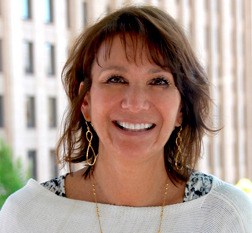By King County Prosecuting Attorney’s Office
Gary Ridgway, better known as the Green River Killer, was possibly the most prolific serial killer in America when authorities arrested him for four murders based on DNA evidence in 2001.
Eventually, Ridgway was convicted of killing 49 women over two decades, but he confessed to killing nearly twice that many women, many of whom were prostitutes.
As a team of King County prosecutors worked on the case, media outlets kept up a steady stream of reporting on the Green River Killer.
“We had just taken a deposition of a prostitute survivor in Las Vegas,” recalled Patty Eakes, who was co-counsel on the Ridgway case, in a recent interview. “I turned on the news while I was getting ready for work one morning, and I heard, ‘The prosecutors deposed prostitute Patty Eakes for the Green River Case…’”
She called the newsroom to let them know she was the prosecutor on the case, not the prostitute.
Eakes laughs as she recounts the story. The station apologized profusely, but colleagues at the office weren’t finished with the ripe opportunity the erroneous report provided.
Eakes says she got an email from the HR department later that day: “We heard on the news that you have an outside job. We want to remind you of our office policy requiring you to get clearance for all work outside the office.”
The friendships and humor and collegiality in the prosecutor’s office served as a backdrop to the serious work that often took Eakes to grisly crime scenes as one of the original prosecutors in the Most Dangerous Offenders Project that formed in 1995.
MDOP prosecutors carried pagers, and later, bulky cellphones so they could be called out to every suspicious death scene in King County in the event they might eventually need to build a case for the prosecution.
The first scene Eakes was called out on involved a dead baby. Another time, Eakes went to an apartment where a mother and her 2-year-old daughter had been bludgeoned to death with a hammer. Law enforcement and prosecutors took the case to behavioral scientists at the FBI in Quantico for their help in putting together a profile of the killer, but that case was never solved.
“I think of that every year on the anniversary of the case in November,” Eakes said. “Who does that to a 2-year-old? With a hammer?!”
Later, King County law enforcement called upon the same expert profiler at the FBI, Mary Ellen O’Toole, to help them with the Green River Killer profile.
“Ridgway shattered all the myths of serial killer profiles for me,” Eakes said, who was part of the team that interviewed Ridgway extensively for six months after his arrest to gain information on all of his murders. “Ridgway didn’t feel dangerous. He seemed kind of normal, but strange and geeky. You had to remind yourself that he could strangle you and have sex with your dead body.”
“Ridgway was the anti-serial killer in every way. You hear about serial killers’ motivations. Their intelligence. The idea that they keep souvenirs from their victims. He didn’t take souvenirs or try to taunt the police or try to increase the excitement by trying new things.”
“He had a tried and true method of doing things and he never varied from it. He choked the women and dumped their clothes out the window,” Eakes said.
After the Green River case and a stint in the civil division, Eakes left the prosecutor’s office to work in private practice and is a founding member of the firm Calfo Harrigan Leyh and Eakes where she practices in civil litigation and white collar criminal matters.
“It wasn’t until I left that I realized I had seen some really awful, bad things. When I left, I felt the weight of responsibility lifted from me,” Eakes said. “Every case you handle as a criminal deputy has huge implications for the victims and their families whether it’s a sexual assault or murder case. There’s a pressure to ensure that justice is done and to make sure that some horrible, dangerous person is not out on the streets.”
Today, Eakes keeps at least one connection to the office: her son, Sam Gray, a senior in high school, is now an intern at the King County Prosecutor’s office.
“The lawyers there are not getting famous or making a lot of money,” Eakes says, “but they are really good lawyers and good people with their hearts in the right place.”
Editor’s Note: The King County Prosecuting Attorney’s Office posted this story May 13 on its Facebook page.
Talk to us
Please share your story tips by emailing editor@kentreporter.com.
To share your opinion for publication, submit a letter through our website https://www.kentreporter.com/submit-letter/. Include your name, address and daytime phone number. (We’ll only publish your name and hometown.) Please keep letters to 300 words or less.

